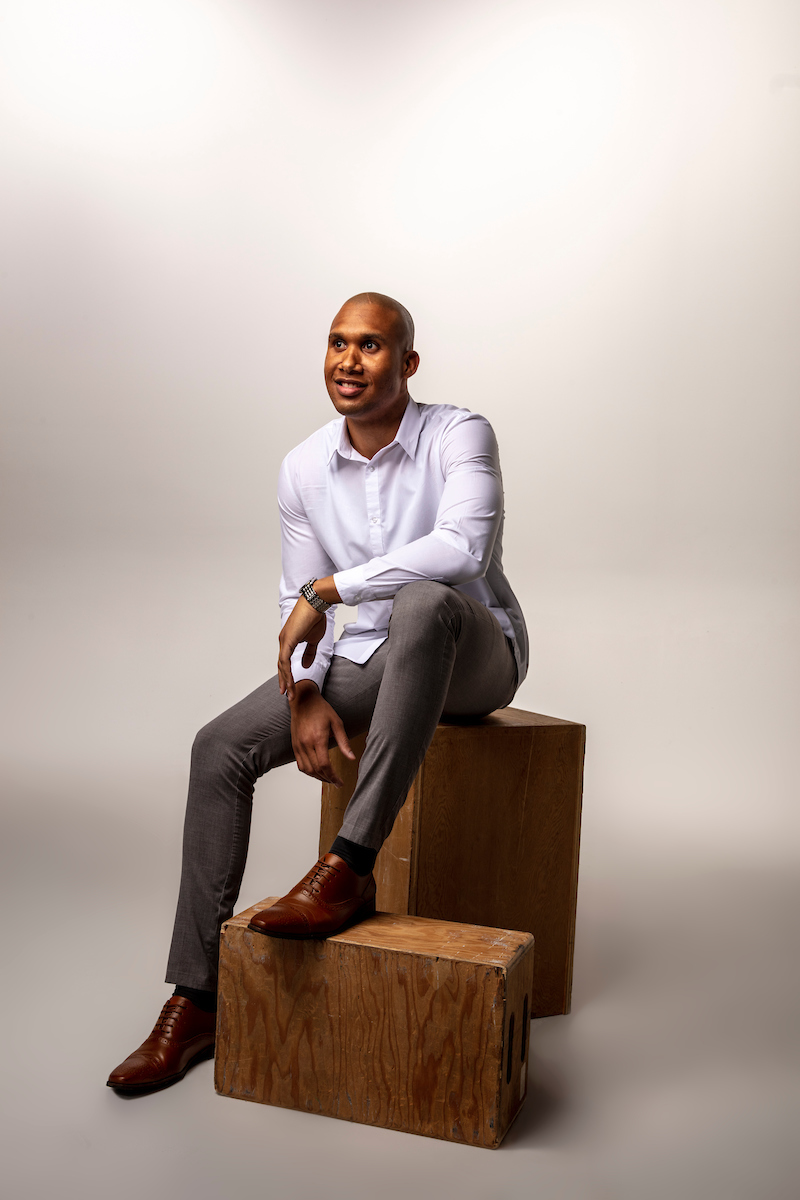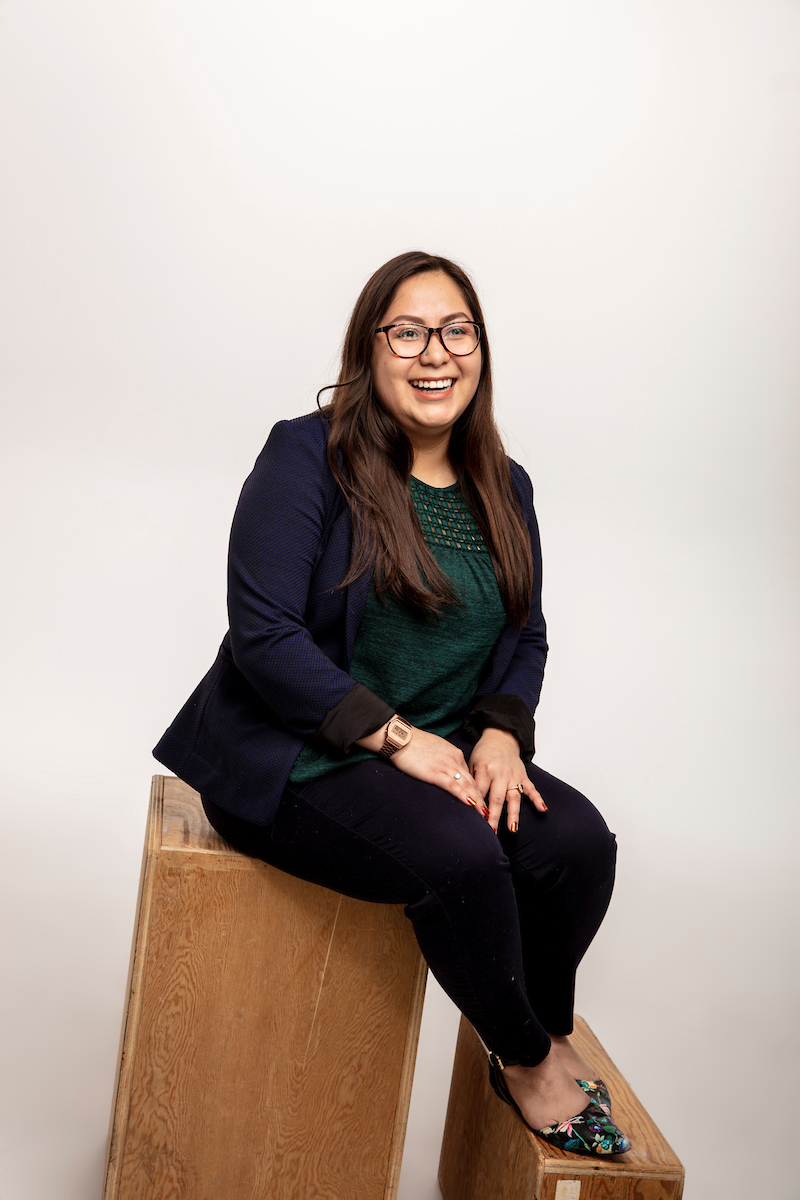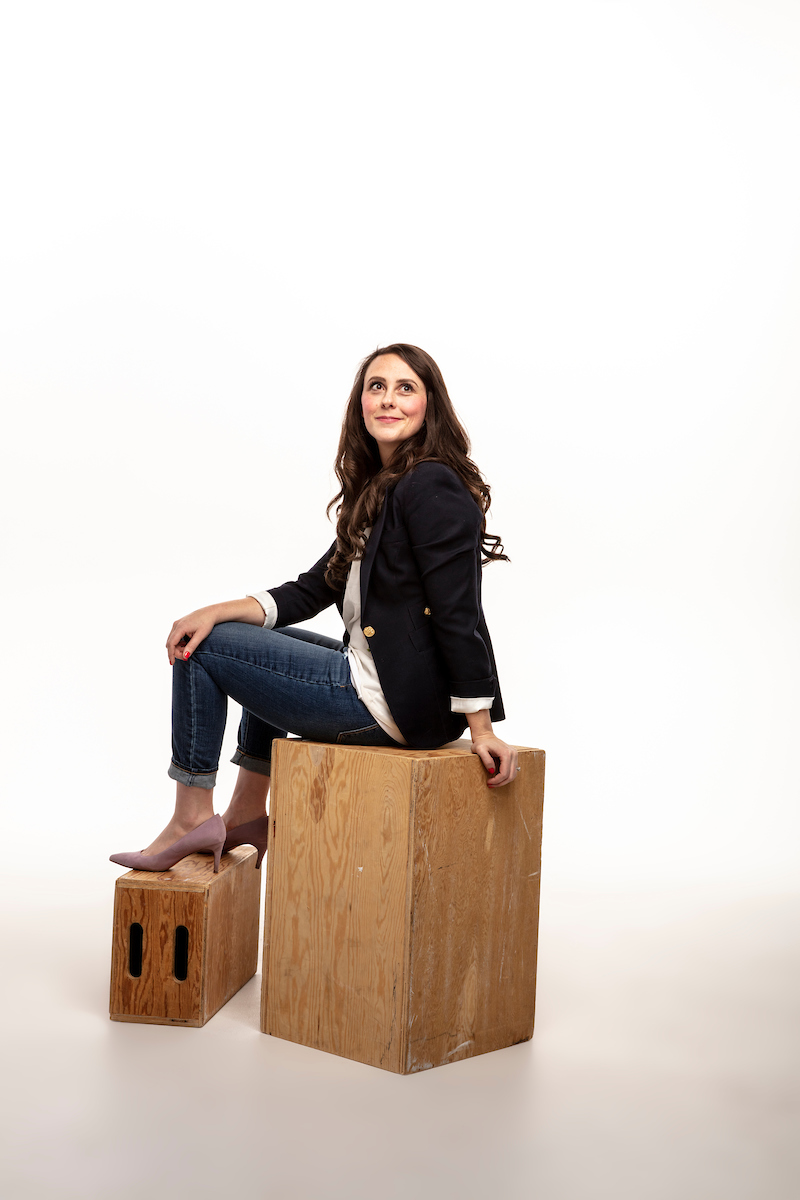
UVU is forging avenues and building foundations for first-generation students to thrive
By Kim Bojórquez | Photography by Jay Drowns
AFTER BRADY SILVA spent a summer in Utah with relatives, his parents decided it was
best for him to make his visit permanent in hopes that he would have better educational
opportunities in the U.S. Originally from the Dominican Republic, Silva was living
in Puerto Rico with his family when he was told he was moving to Utah.
“It was always vital for me to continue my education, and having the support of my
family helped me make entering academia a priority,” Silva says.
Once he completed high school, Silva visited Utah Valley University’s Multicultural
Student Services (MSS), which is what he calls the “deciding factor” in his decision
to enroll in classes on the Orem campus.
“I was on my own, and as soon as I stepped into campus, it felt like a second home,”
Silva says.

One of the most important factors for Silva was finding a group of people that he
felt connected with. Fortunately, he found a sense of be longing in MSS and joined
a Latino student club on campus known for bringing “Bachata Fest” to campus. It is
a Latin dance event that grows larger each year and donates a portion of its proceeds
toward student scholarships.
First-generation students navigate through the college experience differently compared
to traditional students. At UVU, a student is first generation if neither parent nor
guardian has completed a bachelor’s degree in the U.S. Firstgeneration students are
trailblazers in their families, and often decide to pursue higher education at a great
cost. According to Garrett Nagaishi, UVU’s I Am First program manager, first-generation
students are irrespective of class, ethnicity, gender, and major.
“They are everywhere throughout the university,” Nagaishi says. “They’re across departments,
colleges, and majors evenly throughout the university.”
Currently first-generation students reflect 36% of the university’s enrollment numbers,
and that number is growing by roughly one per cent each year. I Am First seeks to
connect firstgeneration students with a mentorship program, networking opportunities,
and vital campus resources.
“We are leading the Utah schools in tracking the status of our first-generation students
and providing support to them. We are leading the charge,” says Marcy Glassford,
director of First Year Experience and Student Retention at UVU.
Belinda ‘Otukolo Saltiban, UVU’s chief inclusion and diversity officer and a first-generation
student herself, says the FirstGeneration Completion Initiative is important to UVU’s
inclusion efforts. They are key to UVU’s mission and Strategic Inclusion Plan, which
strive to provide access, equity, and opportunity to all students.
“One of the defining characteristics of first-generation students is that many don’t
have an at-home support network in preparation to go to college and while in college,”
Nagaishi says. “Sometimes tied to that is something that is often called ‘imposter
syndrome,’ when they feel that they don’t belong here or that they are not like these
other ‘smart kids’ whose parents or grandparents went to college. We have a lot of students
who feel this way, and they can’t always articulate it unless it’s actually brought
to their attention.”
Without college survival tips or institutional history from their parents, many students
come to college and don’t know the terminology or that they need to buy books. They
face a lack of knowledge and understanding of where to turn.
“They are navigating the system all by themselves. The university experience is much
more autonomous. They don’t have what we call that ‘university cultural capital’ to
really know how to assertively navigate the university experience,” says Martha Wilson,
assistant director of First Year Experience and Orientation. According to Wilson,
two year degrees are popular among first-generation students.
“If what they want is a two-year degree, we fully support that but we are also trying
to help them understand that there is more available to them,” Glassford says. “By
providing support through Garrett’s office, through mentoring and scholarship funding,
we’re hoping to encourage them to think a little bit broader if they are willing and
interested in that.”
Toward the end of 2018 during the President’s Scholarship Ball, UVU President Astrid
S. Tuminez announced a campaign to raise $15 million for the initiative to support
firstgeneration students. At the time of the announcement, UVU had raised $3 million.
“UVU says to every person in this valley: Come as you are — bring your dreams, and
we will help you with the support, structure, and care to make those dreams a reality,”
she said. “With this First-Generation [Completion] Initiative, we want to underline
that the dreams of first-generation students are not only valued, but they are achievable.”

Social work student Mary Rivera is the first in her family to attend college. Originally
from Arizona, she enrolled in UVU’s social work program in order to make a difference
like the social workers who impacted her life at a young age.
“I’ve always known I wanted to attend college, and my elementary school teachers encouraged
me to because they said I was bright and that I had all this potential,” Rivera says.
She adds she was keen on the idea of going to college when her fifth-grade teacher
took her on a tour of a local university.
Applying for college was a struggle for Rivera, and she gathered together with three
other friends to figure out how to enroll in classes.
“Navigating all the online forms, registration, FAFSA — we had to figure all that
out on our own,” Rivera says. “It’s hard if you don’t know what’s going on.”
She came across the firstgeneration program when she received emails from Nagaishi.
While the majority of students seek out the program to find a mentor, Rivera came
into the program to become a mentor.
Even if she only helps one student, it’s enough to make a difference, she says. Currently,
Rivera is acting as a mentor for her younger siblings and preparing them for college.
Rivera learned of the fundraising for first-generation students and says it could
help a lot of students in her situation and inspire people who think that they can’t
do it.
Rivera currently interns for the Family Justice Center in downtown Provo, Utah, which
offers free legal advice and provides aid for victims of crimes like child abuse and
domestic violence. Upon graduation, Rivera hopes to work in the field and continue
her education by obtaining a master’s degree in social work.

At the age of 15, Keira Shae had just been placed in a foster home when her new guardians
suggested she should attend college. Shae knew no one in her family had completed
high school, and never thought of attending college as an option. She says she’s been
nicknamed the “daughter of Provo” for having been helped by so many community resources
as a youth.
“They encouraged me, but I remember rich people complaining about college so how could
I ever go?” Shae says. “I never thought in a million years that I would get a scholarship,
but I did.”
Upon graduating from high school Shae enrolled herself at UVU, where she would meet
one of her greatest advocates, Professor Matthew Draper, from whom she took multiple
psychology courses.
“I knew she had a luminous spirit,” Draper says. “Compared to her peers, she thought
deeply, she wrote well. More importantly and impressively to me was the fact that
she cared about where she was, who she was with, that being at UVU mattered.”
Early on, imposter syndrome overtook Shae as she was certain she’d flunk out of her
first semester in college. But with the help of counselors and resources like the
math lab, she ended up completing her first semester in college. She went on to complete
her associate degree and pushed herself to earn a bachelor’s degree. Shae was even named
an outstanding graduate of her college.
“There were so many supportive people at UVU — it acted a little bit like my village
in Provo where everyone came together to feed me, clothe me, and shelter me,” Shae
says. “At UVU they loved me and cared for me. The small classroom sizes meant that
I really got to know my professors.”
After graduating with a bachelor’s in behavioral science with an emphasis in psychology,
Shae wrote and published a book about her tumultuous upbringing to her road to success,
called “How the Light Gets In."
After changing majors twice, Brady Silva graduated with a bache lor’s in community
health with an emphasis in hospital administration. With two internships under his
belt at Intermountain Healthcare and experience in student leadership, Silva’s next
academic opportunity is graduate school.
“I decided to apply for UVU’s business administration graduate program because I know
it will open a lot of opportunities for me down the road,” he says.
Silva’s advice to future first-generation students is to try out new experiences.
“Be riskier,” he says.